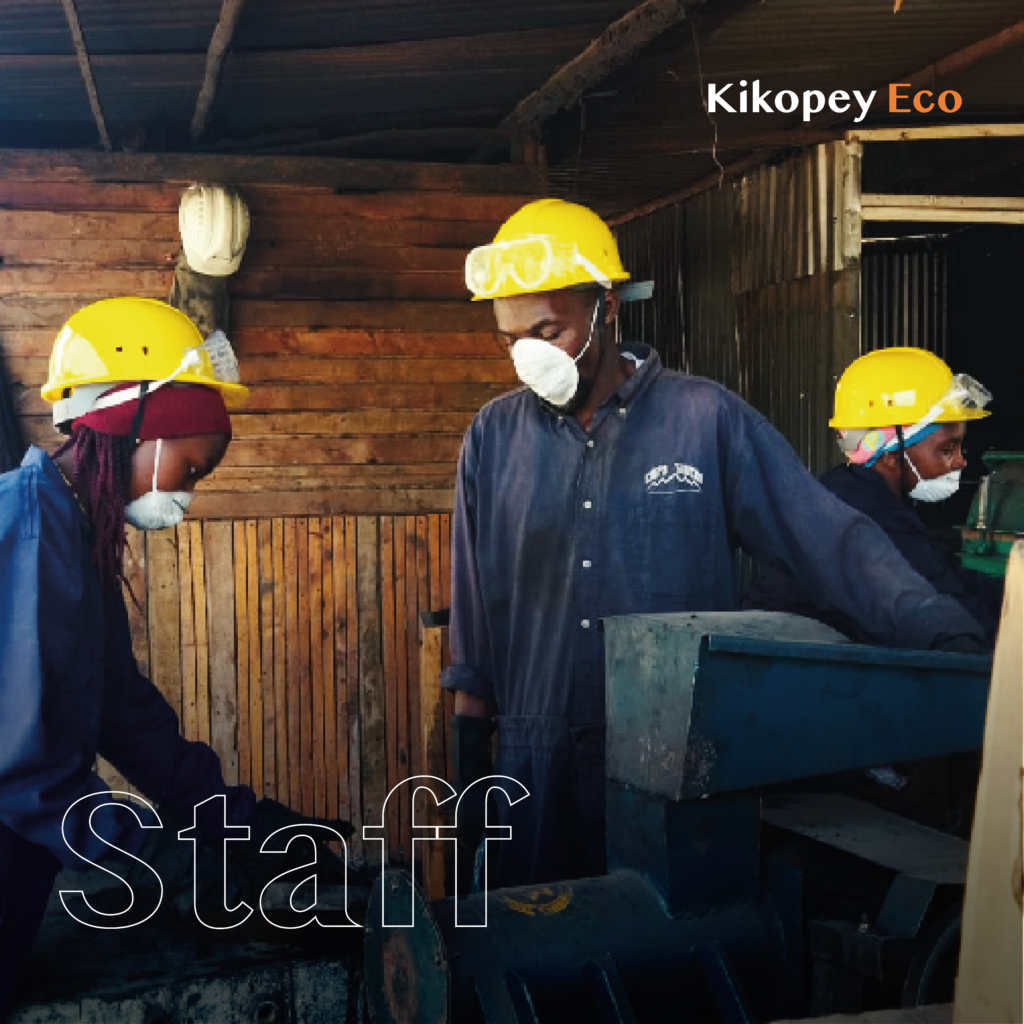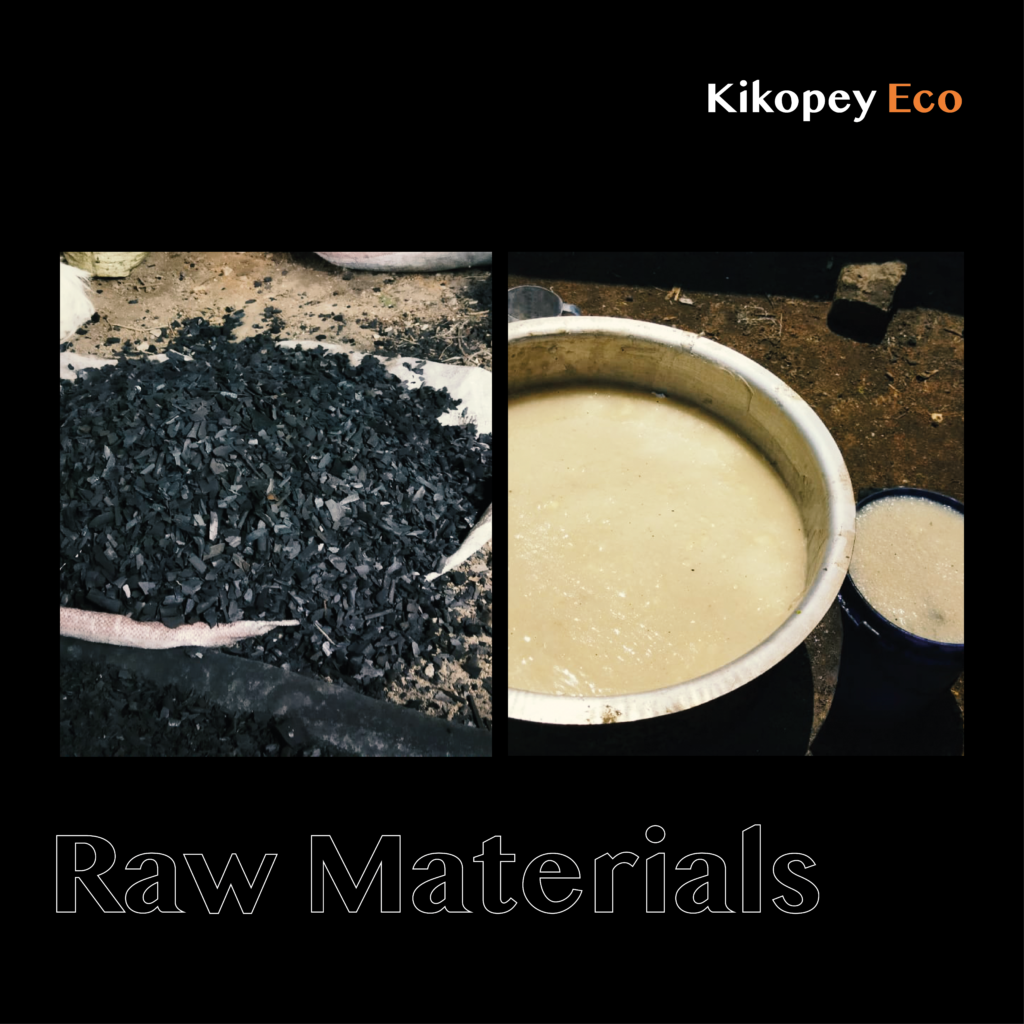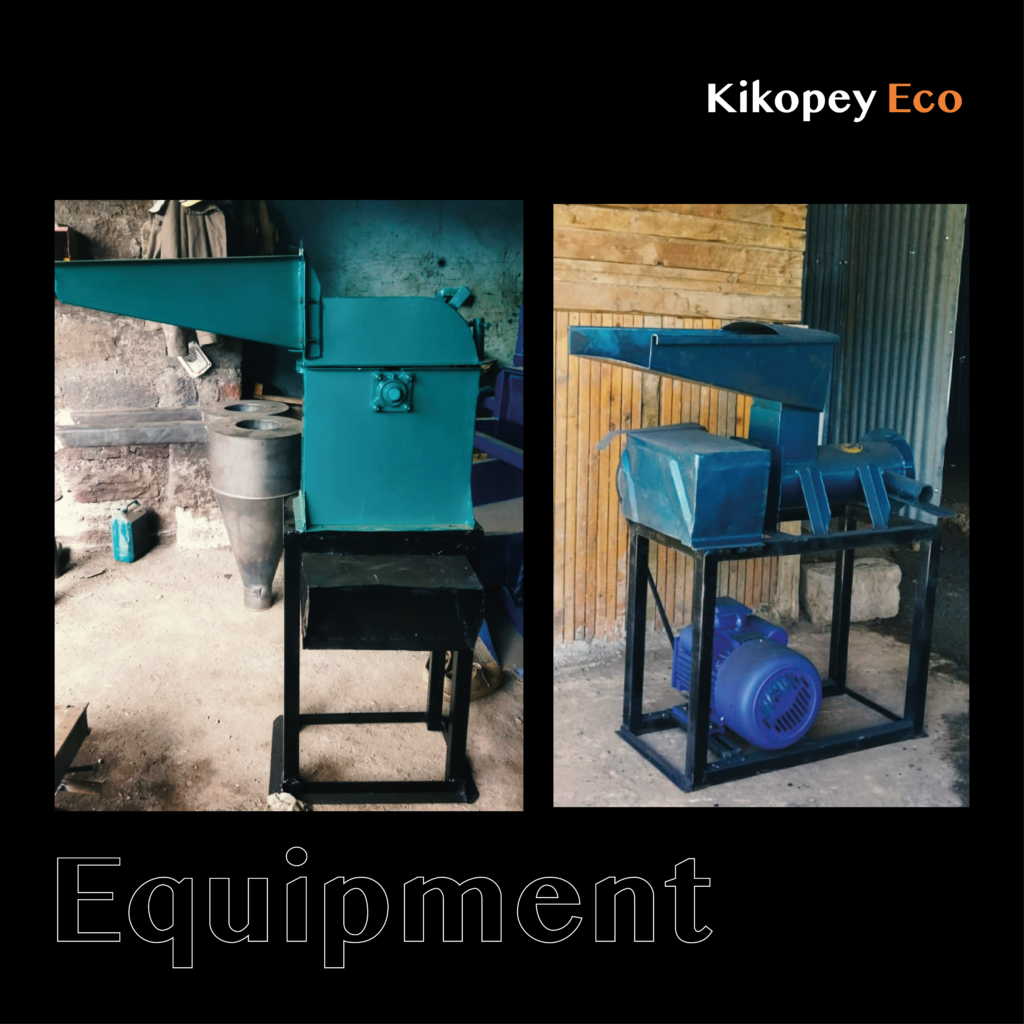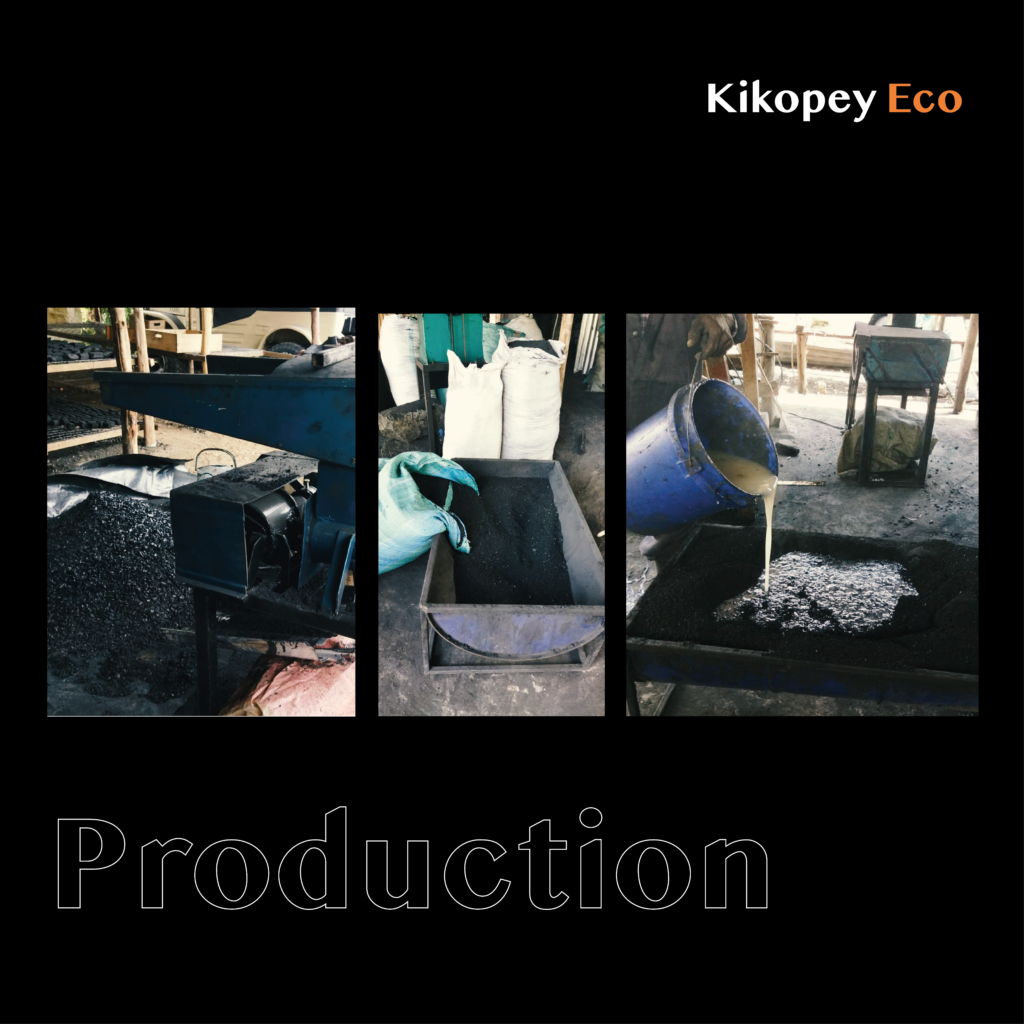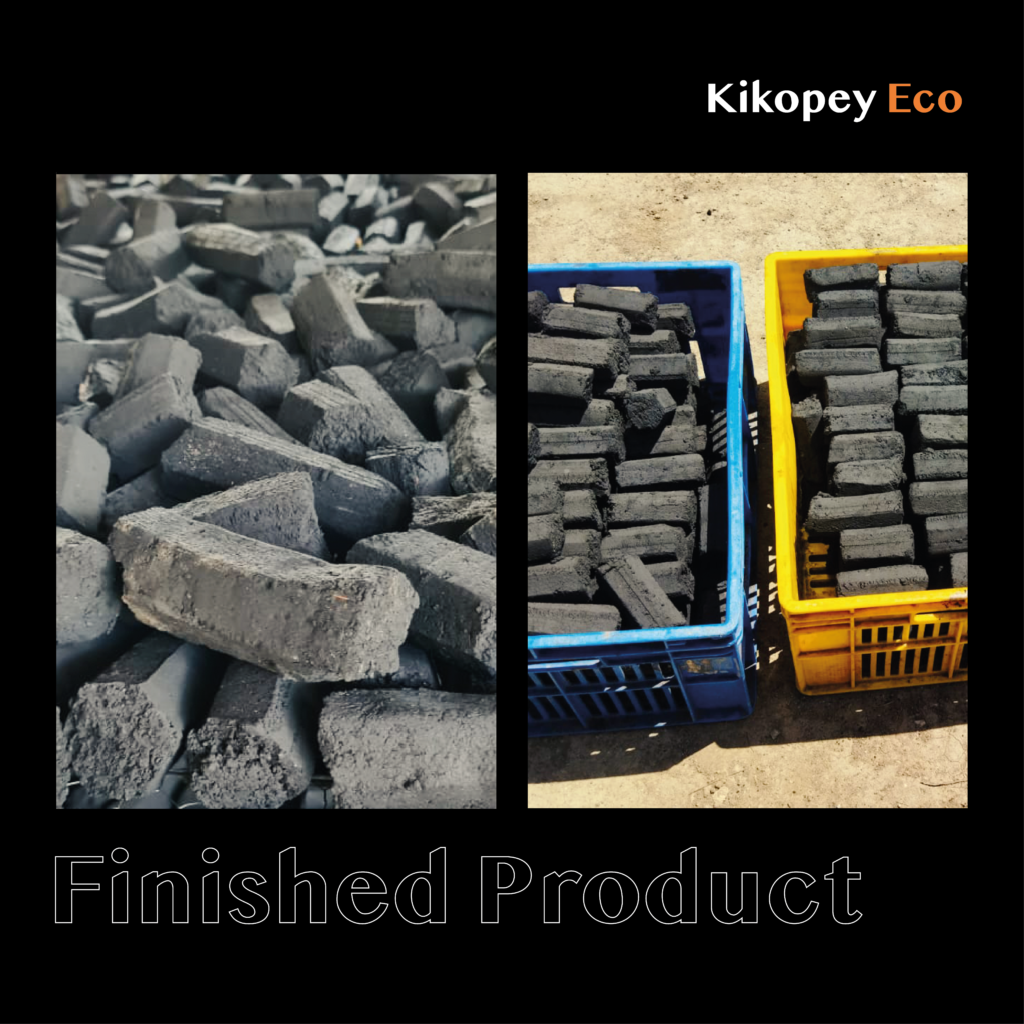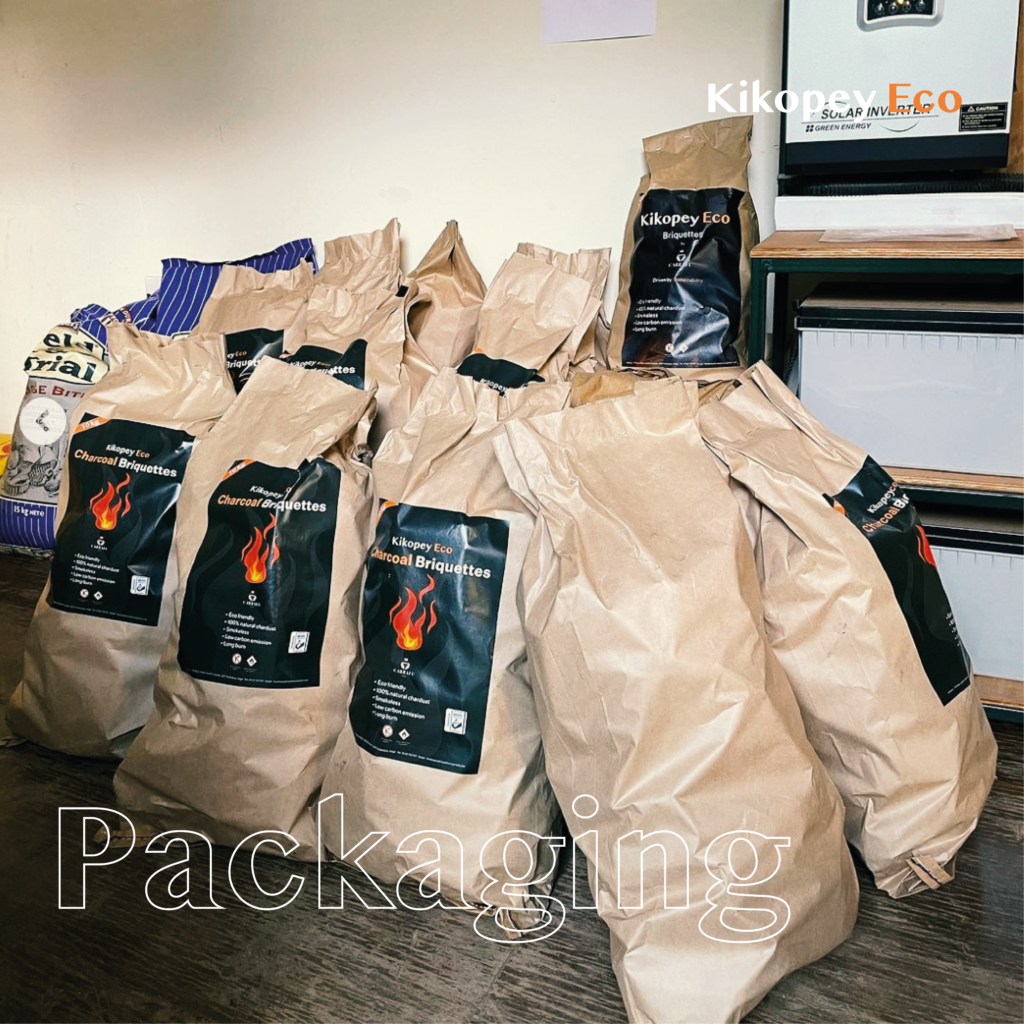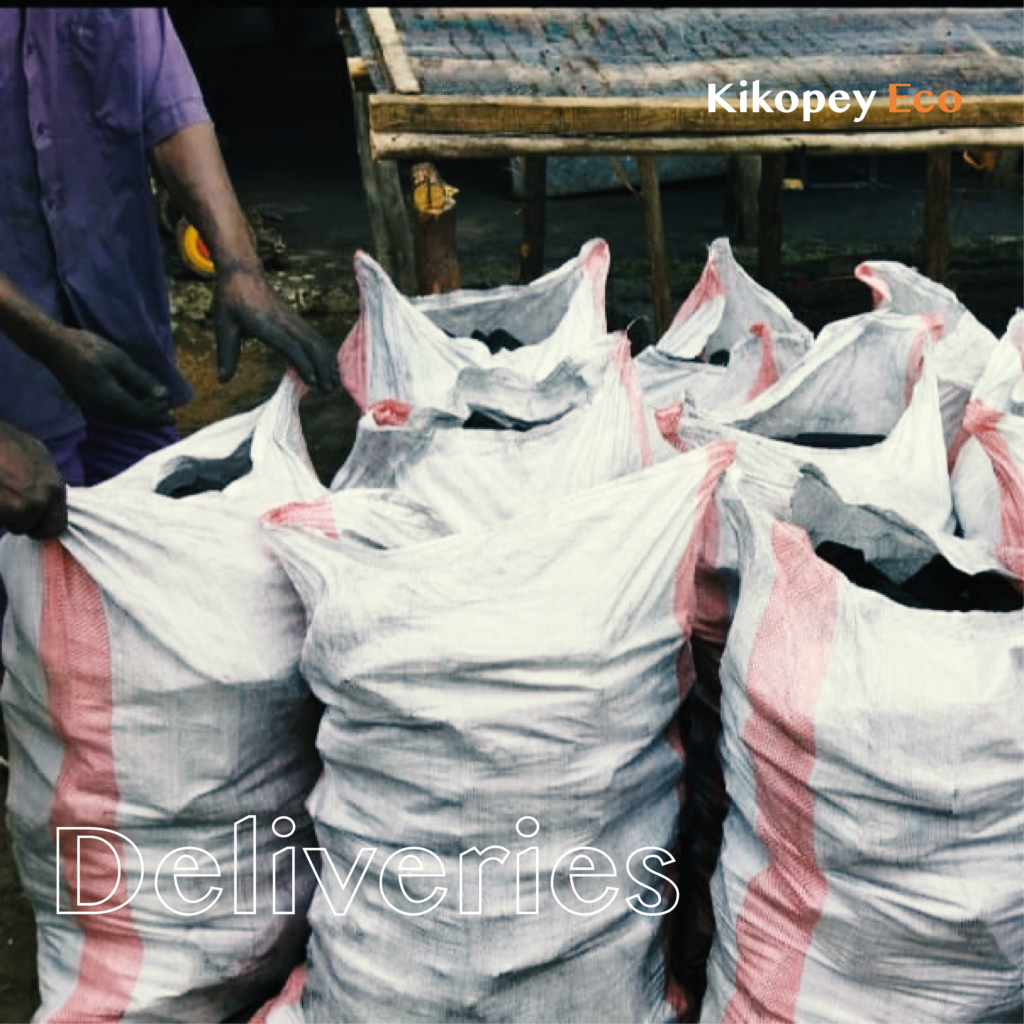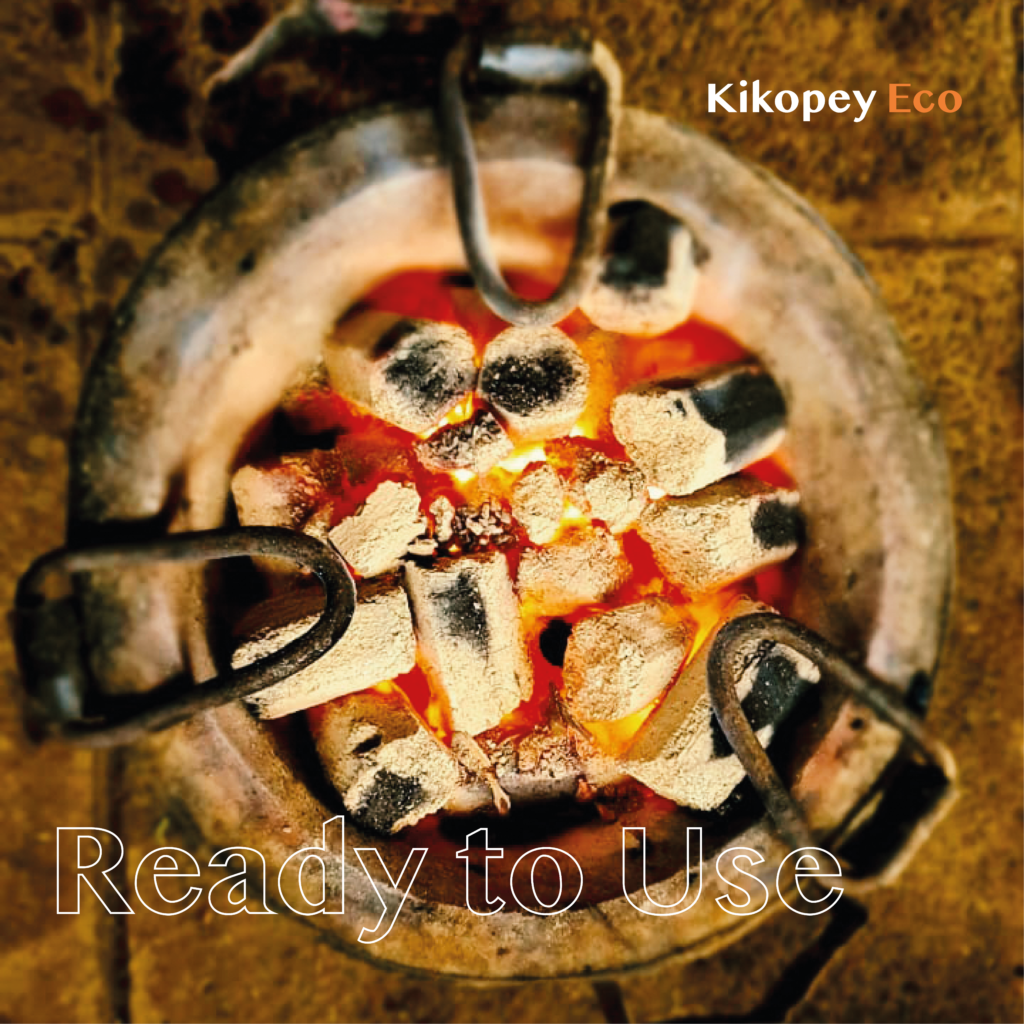On my last trip to Kenya in February 2023, I had the pleasure of meeting Carol Wangu Wachira, who had just started making briquettes and decided to turn it into a business. She joined the United Briquette Producers Association and has made tremendous strides in getting her business up and running. We decided to interview her to find out what inspires her and how she has progressed in that short 9 month span. ~Sylvia Herzog
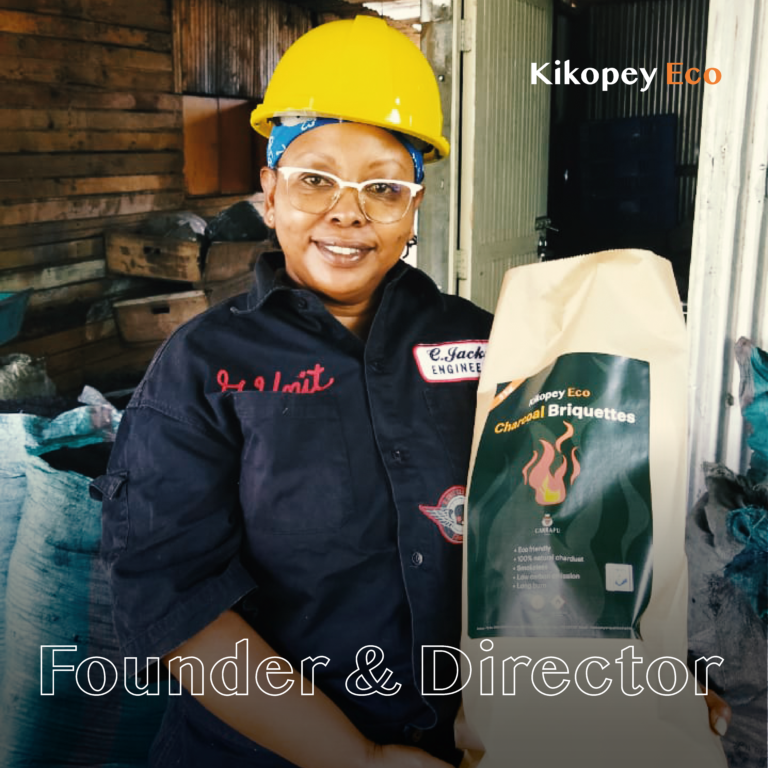
An interview with Carol Wangu Wachira, Founder of Kikopey Eco Charcoal Briquettes
Inspiration and Getting Started
The Charcoal Project (TCP): Carol, what inspired you to start making briquettes?
Carol: Running holiday homes in the Elementaita (Kenya) area was my biggest drive to venture into clean energy. Most of our guests wish to barbeque and enjoy bonfires in the evenings and I discovered that local sources of firewood and charcoal were not sustainable. We live near the Lake Elementaita Sanctuary which is a protected area (UNESCO, IBA) and the ecosystem is threatened. I decided to do something about it and not be part of the problem. I started researching sustainable and eco-friendly sources of both outdoor cooking and heating fuels.
Charcoal usage is big in nearby Nakuru City, hence chardust is readily available and I decided to do a clean up of the waste. I researched and found many people make briquettes using this waste and my journey started
TCP: How did you get started? Did you have capital from friends and family? Outside investors?
Carol: I funded this project by myself from some savings that I had. It was not easy as the equipment is quite pricey for a startup. My crusher and briquette compressor are both locally made in Nakuru county.
Accomplishing the Mission
TCP: Carol, what products are you producing and selling and how do you see those as beneficial to the local population?
Carol: I produce charcoal briquettes for space warming, domestic use and chicken brooding.
TCP: What type of waste are you using to make your briquettes? How is it collected and processed and by whom?
Carol: I make briquettes from chardust using cassava waste binder. Chardust is collected locally from Nakuru and cassava waste from local millers. We have three days of sorting, sieving and crushing to get the chardust ready for production. After prepping the raw materials, we need two days for manufacturing and drying. When we are not producing, the staff are sorting and prepping the raw materials. Bulk orders are packed in Poly sacks while retail are in both poly sacks and khaki bags. All our products are branded as Kikopey Eco Charcoal Briquettes.
I have also recently been able to get the Kenya Bureau of Standards KEBS (KS 2912 :2020 solid Biofuel – Sustainable Charcoal and Carbonised Briquettes for Household & Commercial Use) certification. This guarantee allows me to sell my product in supermarkets and other outlets.
I have a team of 4 permanent staff and 5 part-time staff who help in collection of the raw materials and transport.
Target Customers
TCP: What customer segment do you target and how are you able to reach them with your marketing and distribution efforts?
Carol: My primary customer target is the hospitality industry in my area, mainly for barbeque and space warming. We also market to campers, chicken brooders (for chick warming) and for household domestic use. Our products are currently on sale in supermarkets and farm shops.
TCP: What manufacturing/processing challenges have you faced and how have you overcome those challenges?
Carol: We have faced challenges with the collection and transport of raw materials, equipment breakdown, poor weather for drying, electricity black outs and slow reception of clean cooking energy in the market.
We are working towards getting better and more sustainable equipment, such as a a backup power generator. We also need cheaper ways, more sustainable ways of transporting the raw materials. Transport costs may not become cheaper especially with the current fuel costs. In the future, we hope to acquire a better quality all-in-one machine for production. We also need a dryer for backup during bad weather. Our long term goal is to invest in a small truck which will double in raw material collection and delivery of our finished product to customers. We are currently outsourcing this.
Making an Impact
TCP: Carol, in addition to the number of people you employ directly, how many others (retailers, char suppliers, etc.) generate income from your activities?
Carol: I have 5 locals who I contract to collect the chardust and cassava waste at a fee per bag. Two people handle the transport, i.e collection and deliveries. Local traders buy the products for reselling and earn income from this.
TCP: What are your goals for the business? Do you have a revenue target or long term goal that you can share?
Carol: In the long term, I would like to expand the range of products we offer using different raw materials (e.g., saw dust, rice husks, etc.) I would also like to include fire starters as a product add-on. I believe once we establish our market I will be able to set a revenue target.
Access to Capital
TCP: Carol, as a female entrepreneur in East Africa, how difficult has it been to find the financing that you need for your business? Up until now, what types of financing have you been able to access?
Carol: In the future, I am looking for funding to expand my business and production capacity. I am looking at various lending organizations for this. Investors are also welcome.
Inspiration and the Way Forward
TCP: Carol, what people and organizations have helped and inspired you on this entrepreneurial journey?
Carol: My family has been very supportive of this project. I have also been able to join the United Briquette Producers Association (UBPA), an association of briquettes manufacturers in Kenya which has been quite interactive and helpful.
TCP: As you take your business to the next level, what words of advice do you have for other aspiring clean energy entrepreneurs in Kenya?
Carol: In these hard economic times, it is possible to generate your own heat through renewable energy. Doing this reduces energy costs, reduces emissions and greatly improves your impact on the environment. To make any meaningful impact one must be patient, resilient, and never tire of preaching the gospel of cleaner alternative energy. We can do it.
For more information contact Kikopey at:
Facebook: @Kikopey Eco Charcoal Briquettes
Instagram: @kikopey_eco_briquettes
Email: keekopeyebriquettes@gmail.com
Telephone: +254722757727, +254782884848

